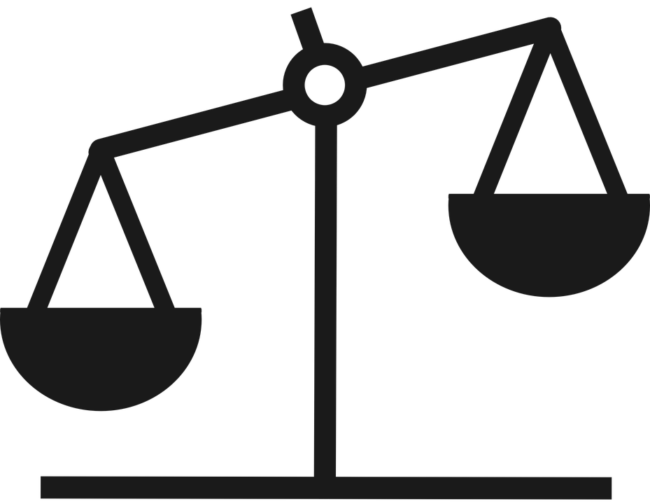
By Lilys McCoy
I recently started using a fountain pen. Why, you may ask? Two reasons: First, I felt I needed to do a digital detox and returning to longhand seemed like a good way to start. Second, my writing hand, previously hardened by years of cursive script on legal pads, spiral notebooks and paper calendars, had become weak, and fountain pens are apparently easier on the muscles (that bit of wisdom was spot on, in case you wondered). I was almost surprised to see that the descendant of the quill is still being sold and supported, but it is . . . and in many different forms and by many different manufacturers.
As I contemplated my digital detox, I also considered the hard reality that I could never really, truly unplug. Absent a decision to live completely off the grid, I must accept some connectivity in my life. And, as an attorney, I must not only accept the networked life, I must embrace it. Our ethical duties require us to do so. Notably, the American Bar Association amended ABA Model Rule 1.1 in 2012 to include technological competence: “To maintain the requisite knowledge and skill, a lawyer should keep abreast of changes in the law and its practice including the benefits and risks associated with technology . . .” See, 2012 Amendment to ABA Model Rule 1.1 Competence, Comment 6, Maintaining Competence as referenced in SDCBA Legal Ethics Opinion 2012-1.
The San Diego County Bar Association, long a leader in the legal ethics space, decided in 2017 to lead in the legal technology space as well. In 2018 we hired one of the first Bar Association Member Technology Officers in the nation — the incomparable Adriana Linares — and launched expert law+tech education. This edition of San Diego Lawyer is dedicated, in part, to helping members become more technologically savvy. But technical competence must not be at the expense of other competencies. And, while indispensable and unavoidable, technology should be in service of what we do as lawyers, not the essence of what we do.
Ultimately, the law is a thinking profession, an intellectual endeavor wrapped in a personal services business. The client engages us and, in exchange for their payment and trust, we provide knowledge, counsel, guidance, decision-making wisdom and advocacy. And let’s not forget thought — deep, clear, logical thought giving rise to multi-dimensional analysis that should, like good chess strategy, be four moves ahead at all times.
So, how do we blend these contradictory competencies? When discussing this column with President-Elect Johanna Schiavoni, she framed the issue well: “We talk a lot about work-life balance, but not much about work-work balance.” The pursuit of work-work balance, or balance within work, may lead us to a way of approaching the conflict inherent among the different competencies required of lawyers. And no one has written more articulately about finding the right balance in work than Georgetown Professor Cal Newport.
In his 2016 book by the same name, Newport defines Deep Work as: “Professional activities performed in a state of distraction-free concentration that push your cognitive capabilities to their limit. These efforts create new value, improve your skill, and are hard to replicate.” The opposite of deep work is shallow work. Shallow work, according to Newport, is “Non-cognitively demanding, logistical-style tasks, often performed while distracted. These efforts tend to not create much new value in the world and are easy to replicate.”
It is easy to see the parallel between the deep work defined by Newport and the work that we as lawyers do. It’s also easy to envision the type of shallow work that distracts from Deep Work, including, as detailed by Newport, rapid-fire communications, social-media expectations and any busyness that serves as a proxy for productivity.
Indeed, shallow work, fueled by our instant and continuous connectivity and filled with interruptions adds “cognitive switching penalties” that drain energy and time. Researchers like Gloria Mark at U.C. Irvine have established that even short interruptions can significantly affect task completion. And all technology, especially in the form of endless e-mails, has the potential to be tyrannous, promoting a perceived need for instantaneous response that relentlessly interferes with the actual work of lawyering. (For a quick but interesting read on the perils of working out of your email inbox, see “Email is Not Your Job” at https://timemanagementninja.com/2013/10/email-is-not-your-job/).
Commitment to deep work, on the other hand, improves analytical and abstract thinking and builds on itself in a virtuous loop of improving the ability to concentrate and, subsequently, improving executive function. Newport found that valuable work — up to four hours per day — with powerfully focused concentration has other benefits, too: a greater ability to be present and calm, which pay dividends in our personal lives. Through his use of deep work principles, Newport reported that he was able to be extremely productive while also ending his day at a reasonable time. This added benefit, the one that allows us to complete our work and also spend quality time with friends and family, increases overall well-being.
All of this musing, written using both my new fountain pen and my solid-state laptop, leads me to an appreciation of the incredible gifts we have in this most special of legal communities. As you read through this month’s San Diego Lawyer and meet our new executive director, Jill Epstein, and say goodbye to two beloved past presidents, Craig Higgs and Andrew Albert, I hope that the goal of balancing the deeply meaningful work of the law with the ability to be deeply involved in the lives of those we love is foremost in your mind.
Lilys McCoy is the 2019 SDCBA President.
This article was originally published in the Mar/Apr 2019 issue of San Diego Lawyer.